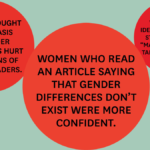One-woman show by Japanese American performer who converted to Orthodox Judaism touring nationallyBy LYNDA LIN, Assistant Editor, Pacific Citizen
Even in Hawaii, Asian eyelids are the bane of a young girl’s existence. Growing up in Honolulu, Christine Frances Masaye Horii and her friend preened, folded, tucked and even flirted with the possibility of cosmetic surgery in order to be beautiful. But when the reflection in the mirror did not conform to the “Cheryl Tieg” type beauty, the little Yonsei girl silently blamed her ethnicity. She learned dance as a form of expression to communicate her pain and emotions through her fingers and the movement of her hips. Soon, she was dancing in music videos, the “Arsenio Hall Show” and at the Radio City Music Hall as one of the world famous “Rockettes.” She was also doing musical theater (“Shogun,” “Miss Saigon”) and appearing on various television commercials. But even with all the success she felt empty. Then life threw her a curveball. She met a “nice Jewish boy” named Todd Factor who only wanted to marry a nice Jewish girl and raise Jewish kids, so she searched her soul, found Judaism and her real calling in life. Now known as Rachel Factor, she headlines a national, one-woman theater piece cheekily titled “J.A.P.,” which chronicles her unlikely journey from Honolulu to Hanukkah.
Pacific Citizen: Why was your childhood so tortured? Rachel Factor: When I look back, my life wasn’t so bad. I grew up in Honolulu and even in Hawaii, where there is a big Japanese population, we were affected by the whole idea of identity, which was of course affected by the media. Basically, I was living up to society’s ideal. And in my case, I blamed it on my Japanese American ethnicity. PC: A lot of coming-of-age stories include a move to New York. Was it a complete shock to you coming from Honolulu? RF: I thought it would be, but it wasn’t because I was so goal-orientated. All of my friends left home at the same time, but they were in college. I was in a learning environment too, but it wasn’t quite structured the same way. PC: You describe the Broadway scene as ‘gritty.’ Do you have any horror stories to tell? RF: A group of women from ‘Miss Saigon’ were sitting around frustrated about the roles that we were auditioning for, so finally we thought that if we don’t do something for ourselves we’re going to keep complaining! We called ourselves the ‘Killer Geishas A Go-Go!’
Initially, we wanted to do something so radical and weird — we wrote pieces and combined them into a series. It was extremely theoretical where we would present the typical Asian stereotypes and then break them down to show the audience that it’s not exactly what they expected. PC: Sounds like the ground works to a greater project. RF: It was through that theater community that my writing for this show (J.A.P.) kind of pieced together. Half of the show is about how I learned to love being Japanese American and realized that growing up, I suffered from internalized racism. PC: I heard your mother had an interesting reaction when you first told her you were dating Todd. RF: I met my husband through a mutual friend. She was making a short film and we were both helping her on the project. I called my mom and told her that I met this nice Jewish boy who wanted me to convert to Judaism and how ludicrous it is and she said, ‘I was just thinking that you should marry a Jewish boy!’ She thought the Jewish values of family and money were in line with Asian values! PC: What kind of ceremony is performed in order to convert to Judaism? RF: I went through two conversions … we met with a rabbi for a period of time, which would determine if my intentions were pure. It was a yearlong process and the rabbi realized that we were working very hard and that my heart was in the right place. PC: What has been most difficult about the conversion? RF: For me rules in modesty — to cover my hair and not dance in front of men — was something I had difficulty with. But it gave me a sense of dignity to be proud of who I was and to stop flaunting body parts. The laws of modesty meant to accentuate what you truly want to accentuate. Instead of the baser nature, you always elevate yourself, which is beautiful because I was always looking for art to connect to something bigger than myself. I was looking for truth and I found it was in a religion. PC: Do you teach your children Japanese tradition? RF: Not a whole lot. If it’s something they want to explore, then I will definitely support it. I had the opportunity to travel to Japan several times and I would love to take them as young children. And for us, we’re culturally connected to Hawaii. It’s important for me to have them connected to Hawaii and their relatives. PC: Where is home now? RF: In the end, Jerusalem is my home. I now live in Jerusalem. We bought a home and can’t wait to get back. PC: Why are audiences women-only? RF: The voice of a woman in Orthodox tradition is considered nakedness; something private that’s only shared with the husband or other women. It’s marketed towards the Jewish audience, but it’s also a story of an individual searching for herself. Part of the message that I want to communicate to mainstream audiences is that I kept an open mind. PC: Can you explain the significance of your title? RF: The whole J.A.P. thing was ultimately too good to pass up. Hopefully, it’s tongue and cheek enough to not offend anyone. As I look deeper, it’s just “J” period “A” period “P” period. It’s much more than a derogatory word towards JAs if you look deeper.
Other Readings of Interest
|
||
|










